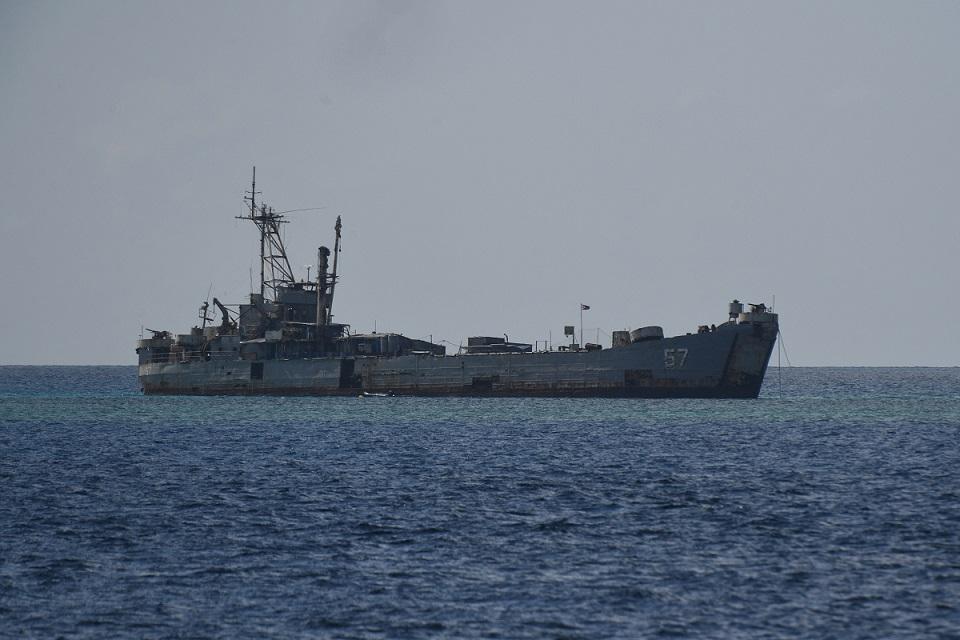PH seeks inclusion of SCS ruling in Italy's security strategy

The Philippines has sought for the inclusion of the landmark 2016 arbitral ruling, which invalidated China's massive claim in the South China Sea, in Italy’s Indo-Pacific strategy, Manila's top envoy to Rome said Wednesday.
In a statement, Ambassador Neal Imperial said he was tapped to speak before Italian lawmakers discussing Italy's ongoing efforts to craft a security strategy for the Indo-Pacific region.
During the hearing at the Italian parliament, Imperial stressed the importance of upholding the rule of law and a rules-based maritime order in the South China Sea and West Philippine Sea based on the UN Convention on the law of the Sea (UNCLOS) and the 2016 arbitral award largely won by the Philippines against China.
West Philippine Sea is the Philippines' name for areas in the South China Sea that is within its territory.
"We welcome Italy’s interest in charting its own Indo-Pacific strategy. We expect Italy, as a major stakeholder in the Indo-Pacific, to support the rule of law and a rules-based order in our region," Imperial told lawmakers.
Imperial was the sole ambassador invited to a hearing of the Italian Parliament’s Sub-Committee on Foreign Policy for the Indo-Pacific, where he highlighted the geostrategic importance of the Indo-Pacific region and the vital role of all stakeholders, including Italy, to ensure unfettered access to the disputed waters amid China increasing assertiveness.
The hearing focused on the strategic projection of Italy and European countries in the Indo-Pacific region.
Imperial echoed President Ferdinand Marcos Jr.’s recent statement at the Shangri-La Dialogue in May 2024 that the Philippines is not a mere pawn in a game between powers, but a reliable partner with full agency to ensure that a rules-based order is in place in the Indo-Pacific.
Committee President Paolo Formentini said he is aware that “tensions are high” in a “dangerous and risky” South China Sea and sympathized with the challenges faced by the Philippines.
Formentini told Imperial that sovereignty of coastal states should not be threatened.
He stressed that last month's deployment of the Italian aircraft carrier Cavour and naval vessel Morosini to South China Sea demonstrates Italy's commitment to strengthening diplomatic ties with Indo-Pacific countries and maintaining a free and open Indo-Pacific.
Formentini welcomed the Philippines' "timely and comprehensive" interventions, noting that he found them to be useful for the Sub-Committee’s efforts in formulating Italy’s Indo-pacific strategy.
Imperial thanked and commended Italy for its consistent support to maintain a free and open Indo-Pacific, and for recognizing the 2016 Arbitral Award as legally binding through the G7 Apulia Leaders’ Communiqué issued on June 14 under Italy’s G7 presidency.
The G7, a group of industrialized powers made up of Italy, Germany, United States, United Kingdom, Canada, France, and Japan, condemned China’s disturbing harassment of Philippines' supply and coast guard vessels in its own maritime space.
Recent confrontations at Ayungin Shoal, also called Second Thomas Shoal, and other areas in the South China Sea have sparked fears of more dangerous unplanned encounters that may escalate to a full-blown conflict that would involve the United States, Manila's treaty ally.
On June 17, the Chinese Coast Guard blocked, harassed, and attacked Filipino Navy personnel while bringing food and other supplies. Several Filipinos were injured, including one who lost his right thumb.
Washington has warned that it has a treaty obligation to defend the Philippines from hostile armed attacks.
President Ferdinand Marcos Jr. said the Philippines would be resolute in protecting its sovereignty but would only employ peaceful means to resolve disputes.
Manila on Sunday said it had reached a crucial arrangement with China that will avoid altercations at Ayungin Shoal. The Philippines and China have not released details of their agreement. — RSJ, GMA Integrated News




